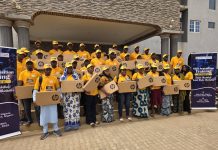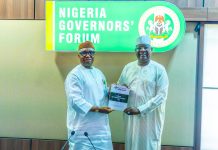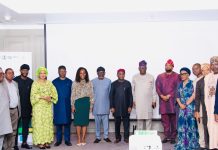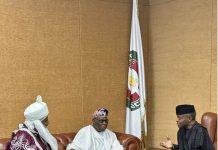It’s an amazing thing whenever one has the opportunity to observe true Christianity in its simplicity.
I arrived in Oxford barely a few months ago and the strucrure and culture of the local church here, which I attend is nothing short of a joy to behold.
The leadership is steered not by any known face you can link the church to, but simply a team of elders.
If you came into the church and asked, “please, who’s the head or senior pastor here?”. The people who but stare at you in bewilderment. Because there’s no such thing.
They will kindly ask you to specify the name of the leader you’re asking after or point out a person or two to you who are in the team of leaders. There’s no ranking among them. They just complement one another and may perform different roles.
No one sits in the Lord’s congregation as the numeros uno or primus inter pares.
No man is regarded as so-called “set man”. The leaders come into church and they simply sit wherever they find space.
All seats are the same. And no usher will stand you up to say, “oh, sorry, this spot is reserved for so and so, priest, could you please, sit elsewhere? ” Eventhough the leaders who take one or function or the tend to find seats somewhat closer to the podium for the need of having to go there often.
Leaders do not wear the most expensive attires to differentiate themselves from everyone else. They wear normal sweaters, Chinuse, Jeans, shirts like everyone else.
No one is so flamboyantly dressed nor does dressing or societal position acords anyone any special status in the assembly.
No one greets his brother, calling them by their titles or bows or prostrates.
Oxford is a highly academic community and one in five persons you meet even casually is likely a professor, a PhD or studying towards those. Yet, none of that matters.
Everyone is simply the same and placed in a mesh pot of homogeneity. No one aims to impress anyone.
Big and small, drink coffee together and have interactive session where every member and his contribution is equally valued.
No one prays in the name of the God of a pastor or the commission but in the name of the name of Jesus and to the God and Father of our Lord Jesus.
Flyers for programmes which are often rare, just have beautiful religious graphics, timing of schedules and sometimes names of speakers, and hardly any images.
Not a single person is in your face day-in-day-out talking at you from the podium. You show up in church, and the speaker could just be the dude who ushered you in at the door. You never know who it’d be in the next meeting. He may just be a committed member and not necessarily in the team of leaders.
There is not a single face, you may link or hold unto as the face of the assembly.
Not once have I heard the word “tithe” here. Not once have I heard the phrase, “offering time, blessing time”. Not once has a collection basket been passed in my four months since arriving here.
After attending a few weeks, I got disturbed and asked a German friend who’s been in the assembly much longer: “hey bro, don’t you guys give offerings or make donations here?”.
He laughed, and simply said they used to pass baskets prior to the Corona pandemic, but since the pandemic, people make donations volitionally online with or without it being mentioned in a church meeting.
Some working people also instruct their banks to credit the church at intervals based on whatever they wish.
The church funds multi-programme and resource-intensive missionary activities all across the world especially in Asia in Africa and intermittently the leaders on their own accord give a break down of how they’re managing financial resources to the congregation. They in turn call for advise, critique, scrutiny, suggestions etc which may be expressed verbally or in writing.
Thus, the people can see the transparency and financial prudence of their leaders and are incentivised to always give by their own volition without the need for manipulation, pschying or coercion.
No one talks about building more magnificent edifices here. The burden of the people is simply preaching Christ to the far end of the earth and to as many as care to listen.
Focus of the messages are hinged on eternal realities, Godly living, evangelism and missions.
Not once has a prayer being said about “any devil who does not want you to prosper, die by fire.”
Songs are carefully selected spiritual songs with edifying meaning, mostly slow-styled, hymns, psalms and reflective songs. No rhythms which encourages mere dances in the flesh.
Brethren see themselves as brothers and no one claims to be the “spiritual father” or “covering” over the brethren.
Leaders carry their own stuff, have no bouncers or body guards and everyone has access to everyone.
The humility in the congregation is palpable and joy to see.
Bible study is super-participatory and leaders facilitate but speak less. And when a brother gives a more reasonable interpretation to a passage, a leader openly declares that they have learned something or their initial perspective may not have been as good or precise.
Yet, this is not necessarily a small fellowship but fairly large or medium-sized one, running numerous programmes all across the world with no evidence of financial strain or organisational disorder.
Of course, it is not a perfect church and there are biblic subject areas where they have less insight and talk about less, it is predominantly white, a few blacks and Asians, it is denominated although tries to run in a non-denominational way, non-tòngue talking, minimal emphasis on spiritual gifts etc.
Yet, one thing remains inescapably certain and it is that, this humble people bear in them the fruits of the Spirit to a great degree and live in the simplicity of the Gospel.
My experience was also similar, when I lived in Edinburgh.
The Gospel of Christ is simple, but it got to America and Africa and became convoluted.
Mark Godwin








